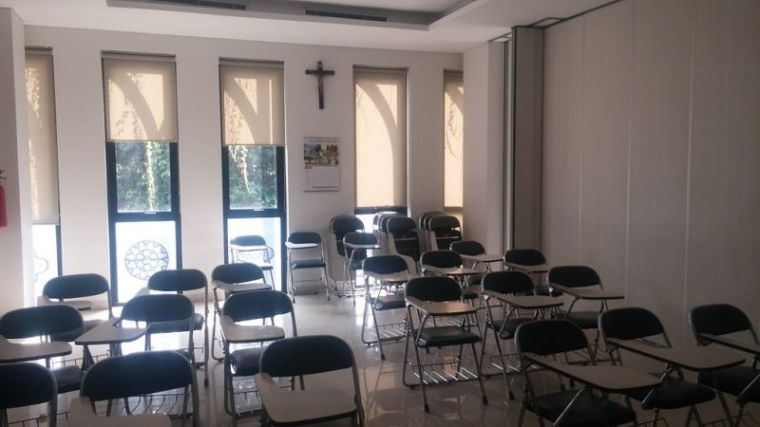Ballarat Christian college settles teacher with LGBT agenda

Ballarat Christian College in southeast Australia can now retain its Statement of Faith defining marriage as a union between a man and woman as a result of a settlement it reached with a former pro-same-sex marriage teacher.
The teacher, an American LGBT advocate did not disclose her liberal Biblical views to the school when applying for her teaching position. She persisted in violating the school ethical code and the school's biblical code until she was sacked. Then violating scripture she took the school to Court. Her pretension was exposed but because there are no religious freedom laws, it is the school that pays the penalty for such non-biblical behaviour.
The school has now been manipulated by an LGBT advocate claiming she has the Christian faith.
As part of the settlement, the Christian college in Victoria will pay an undisclosed amount as payout and give a positive employment reference to Rachel Colvin, who filed the lawsuit backed by LGBT rights group Equality Australia, according to The Australian.
Colvin claimed she was forced to quit when she refused to adopt the school's stance on traditional marriage.
The college’s principal, Ken Nuridin, said,
As part of the settlement, the Christian college in Victoria will pay an undisclosed amount as payout and give a positive employment reference to Rachel Colvin, who filed the lawsuit backed by LGBT rights group Equality Australia, according to The Australian.
Colvin claimed she was forced to quit when she refused to adopt the school's stance on traditional marriage.
The college’s principal, Ken Nuridin, said,
“Our College provides high-quality Christian education in accordance with our beliefs. The claim has taken an enormous cost in time and resources already – detracting from the ability of a small school like ours to focus on what is important, the education of our students.”
In the 2017 Australian Marriage Law Postal Survey, more than 61 percent of voters approved a change to the law to legalize same-sex marriage.
The Ballarat Christian College case has highlighted the need for religious freedom for those who believe in traditional marriage, some Christians have argued.
Christian Schools Australia’s director of public policy, Mark Spencer, said that there was a need for the government to bring in its religious discrimination bill, which was introduced last year by Australia’s Attorney-General Christian Porter and Prime Minister Scott Morrison.
“We are calling on the Commonwealth Government to ensure that the proposed Religious Discrimination Bill clearly protects Christian schools from these sorts of claims,” Spencer said. “Christian and other faith-based schools must be able to engage staff who share their beliefs and are equipped to teach those beliefs.”
Last year, Christian rugby star Israel Folau’s multimillion-dollar contract was terminated over his Instagram posts, which said “Hell awaits” for “drunks, homosexuals, adulterers, liars, fornicators, thieves, atheists, idolaters” based on 1 Corinthians 6:9-10 in the New Testament.
The post, which added, “Those that are living in Sin will end up in Hell unless you repent. Jesus Christ loves you and is giving you time to turn away from your sin and come to him,” was considered to be in breach of the Professional Players’ Code of Conduct.
“Australia has a strong anti-discrimination framework with specific protections for people against discrimination on the basis of their age, sex, race and disability,” the attorney general said during a speech in Sydney at the time. “This draft bill … extends those protections to provide protection for people against discrimination on the basis of their religion or religious belief, or lack thereof.”
Australia’s 2016 census revealed that the number of people who identify as having “no religion” was steadily increasing and the number of people who identify as being Christian had declined by 36 percent over the last 50 years.
The results showed major changes to Australian society, including that the majority of residents born overseas came from Asia, and not Europe.
As BBC News noted at the time, close to one third, or 29.6 percent, of respondents to the national survey said that they had “no religion,” while only 16 percent said the same in 2001.
Roman Catholicism remained the largest Church in the country, with a 22.6 percent share of the population.
The Guardian reported at the time that the “no religion” category included atheists, secularists, and those who are agnostic. What’s more, since 1966, the proportion of Australians who self-identified as Christians had fallen from 88.2 percent to 52.1 percent.

